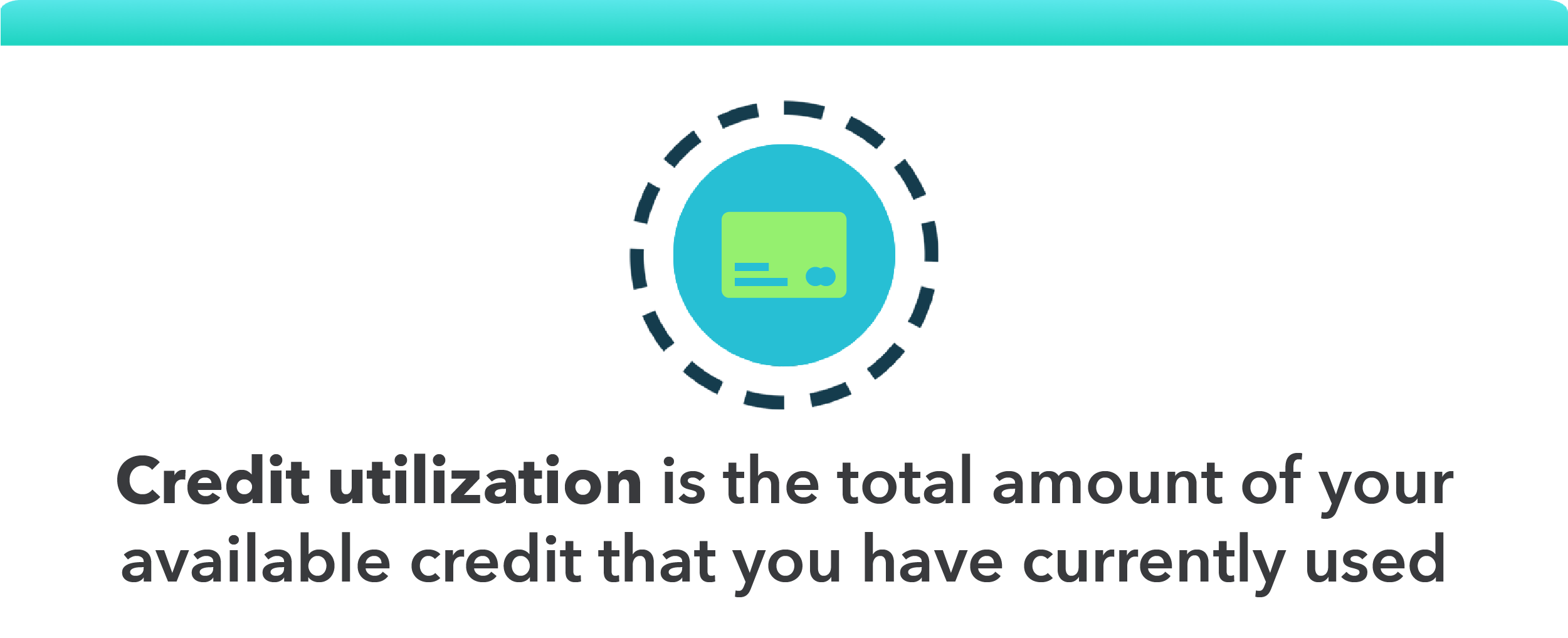It’s a question that many people have on their minds as they begin to seriously consider their finances: how do I raise my credit score, or how do I fix my credit? Though credit scores may seem shrouded in mystery–how they’re calculated, which ones are used–consumer credit scores tend to follow a few common principles.
In this post, we’re explaining some simple tricks to raise your credit score.
Raising your credit score can take time. After all, credit scores are a measure of how trustworthy of a borrower you’ve been over the years. The good news? You can get started on these credit tips today.
In this chapter of our credit series, we’ll be explaining various ways how to increase your credit score and how to keep your credit score high. A good credit score is important for a multitude of reasons and can get you ahead in your personal and financial life. Learn how to boost your credit score today so you can be prepared for the future.
So far in our credit series, we’ve covered a lot of the basics of credit, like why you need a credit score, the factors that affect your score, and what the credit score ranges are. This is all important information to know so that you can have a better understanding of the importance of a good credit score and how it can benefit you. If you need clarification on any of these points, go back and give the previous chapters a read.
How quickly can you raise your credit score
How to increase your credit score quickly is the main question that’s top of mind for many borrowers. The length of time it’ll take to raise your credit score will differ for every person depending on various factors, such as:
Your current credit score
Your financial health
Your ability to pay down debt
The length of time you’ve had credit
If you’ve had any negative impacts and what they were
It will usually take at least a few months of consistent efforts and strong credit building habits for you to raise your credit score. Be patient and stick with it! You’ll get to that ideal number eventually.
Why raising your credit score should be a priority
There are many reasons why having a high credit score is important. You need a good credit score to buy a house. You need a good credit score to buy a car. You even need a good score to land a job. If your starting credit score is lower than you expected, don’t worry, there are plenty of things you can do to achieve the highest credit scores.
Raising your credit score is important, but you might not have a solid idea of what exactly your credit score is. Don’t worry; it’s not as complicated as you might think.
Your credit score is basically a measure of how reliably you pay back money that you’ve borrowed.
You can have a couple of different credit scores, but there are two main models that credit reporting bureaus use to measure your credit:
The three bureaus that do the reporting are:
Experian
Equifax
Transunion
Each of these bureaus receives information from various financial institutions you’re involved with, and that information is what determines your credit score.
You’ll generally have a better score if you’ve:
Consistently paid off loans.
Kept your credit usage low.
Stayed on top of all your financial responsibilities.

Both metrics range from 300 to 850, with most scores above 700 considered good to great. If your score is below that—especially if it’s significantly below that—it can be difficult obtaining a loan at a good rate, or even obtaining a loan at all.
The average credit score in the U.S. is around 716 for FICO scores, but you should aim as high as you can. A bad credit score reflects negatively on your creditworthiness and can end up costing you a lot of money.
How to raise your credit score
Here’s what you can do to boost your score if you do find yourself with a lower rating than you’d like.
1. Ask for (and receive) a credit limit increase
If you’ve been regularly making required payments on your credit card, you may want to try asking the credit card company for a credit limit increase.
What to consider before asking for a credit limit increase:
You wouldn’t necessarily want to do this to finance a purchase you otherwise wouldn’t have been able to make. This isn’t a good reason to request a credit limit increase due to timing.
If your monthly balance is relatively steady, you could decrease your utilization rate (a good thing) by increasing your credit limit. This is an example of a good reason to request a credit limit increase.

For those who may not know, the credit utilization rate is the amount of credit available to you that you’re actually using. It’s basically your balance divided by your credit limit. So, if you increase your credit limit and keep the balance the same, the utilization rate will be lower. And that can translate into how to improve your credit score.
2. Pay your bills on time
One simple way to get started building solid credit is to start paying bills on time. Among the many different sources of data that major credit reporting bureaus use to assess your creditworthiness, whether you pay for regular expenses on time is pretty important.
It’s not hard to see why: if you have a good track record of regularly making rent payments, that probably means it’s more likely that you’ll be able to make regular payments on a loan.
The trick, however, is that you may need to connect your bank account to one of the credit reporting agencies’ services. If you’re curious, call or visit the website for Experian, Transunion, or Equifax to see whether you can have your regular bill payments factored into each of these bureau’s tabulation of your score.
*Pro-tip: if you have a hard time managing your bills:
Make a central list where you itemize each bill you have—rent, water, gas, electric, internet—and what day each one is meant to be paid.
Or, even easier, just download the Mint app, which can remind you about upcoming bills and keep track of the money you spend on bills each month.
If you don’t pay your bills on time, they can get sent to collections. When a bill gets sent to collections, the collections agency will contact you directly from payment and you won’t hear from the creditor anymore. This means that the original creditor has written off the debt completely, which can have a major impact on your credit score.
3. Show you can handle different kinds of debt
It’s probably not a good idea to run out and take on additional debt for the sake of it, but if you’re in need of a type of loan you haven’t used before (say, an auto loan for a new car, or a personal loan to consolidate credit card debt) consider taking it on and make regular payments on it; you may see a bump in your score.
Lenders want to see you can handle different types of debt, so adding another type of loan and paying it down could have a positive effect on your score.
Here’s an example. If you’ve been paying down student loans (generally, these fall into the “installment loan” category) but don’t yet have a credit card (generally, these fall into the “revolving credit” category), you could see a score increase just by opening that credit card account and paying off your balance regularly.
4. Open a new account and make on-time payments
If you need additional credit, opening a new account and handling it responsibly (making on-time payments on it, not borrowing more than you can afford) can have the effect of increasing your score.
Remember, though, that opening a new account you can’t handle (where you miss payments and/or take on more debt than you can afford) will likely have the opposite effect: a score decrease. So, it’s a good idea to proceed responsibly.
How to keep your credit score high
Once you’ve got your credit score near where you want it, it’s important to do your best to keep it in good standing. By keeping up the habits listed above, you can ensure that your credit stays relatively stable. However, it’s good to note that, in some cases, credit can fluctuate.
Don’t be surprised if you see your credit score dip, then rise up again from time to time.
For example, maybe one month, you use a higher amount of your credit utilization due to a few unforeseen expenses. This isn’t the end of the world, and with continued responsible debt management and credit usage, your score should recover.
In general, however, here’s what you can do to maintain a high credit score once you’ve got it.

1. Close accounts with care and caution
“I have too many credit cards” is something you may have heard someone say or even thought to yourself. And for many, that may be the truth. But having several credit cards, in and of itself, won’t necessarily lower your score.
Though closing credit card accounts may seem like it would boost your credit score because it’s simplifying your life or making things more organized, it can sometimes have the opposite effect. That’s because when you close an account, two things happen:
You lose the entire line of credit you had, which may decrease your utilization rate (see the 1st tip above).
You’ll stop having that account continue factoring into the average age of your accounts.
Typically, scores want to see you’ve held several accounts open and in good standing for a long period of time.
Here’s a big caveat, though: there are still plenty of good reasons to close accounts, credit cards or otherwise:
The important thing to remember is this: if there’s no good reason to close an account, it’s sometimes wiser to keep it open.
If you do want to close an account, however, don’t worry; the ding to your credit will likely be minor, and it’s likely to recover with time after continued responsible use of the other lines of credit you do still have open.
If you’re considering moving your balance, shop balance transfer credit card deals and personal loan offers from our partners.

2. Stay on top of your personal finances with Mint
Your credit score is just one metric that helps you measure your personal finances.
You should also keep tabs on other important aspects of your financial well-being, including:
Healthy credit
Well-kept budget.
Solid debt-to-income ratio
Steadily growing savings
Mint allows you to do that. By aggregating your financial information—including everything from investments to upcoming bills—into one convenient dashboard, you can have a bird’s-eye view of your financial health.
Knowing when rent, bill payments, credit card payments, and loan payments are due each month can help you raise your credit score and stay on top of it while also knowing how much you have leftover to budget for other areas.
You can check your credit score for free with Mint so that you can continue to stay on top of your finances and monitor any changes that may occur to your credit report.
It’s important to regularly check your credit score so that you can quickly identify any potential errors or fraudulent activity and dispute the credit report if necessary, which can help to raise your score.
Remember, there’s no one magic bullet to build your credit score fast. The above credit tips are just some of the ways you might raise your credit score over time and keep it high. However, lasting, meaningful score increases come from showing consistently strong credit habits.
In other words, don’t forget the fundamentals: pay your bills on time, don’t take on more debt than you can afford, and be careful about applying for too many accounts over a short period of time.
Reminders for Raising Your Credit Score As Quickly As Possible
Keeping in mind the tips above, improving your credit score quickly requires discipline. There’s no overnight fix, but remaining consistent, and prioritizing debt management and your overall financial health can help.
Key takeaways: How to improve your credit score
Your credit score is basically a measure of how reliably you pay back money that you’ve borrowed.
You’ll generally have a better score if you’ve consistently paid off loans, kept your credit usage low, and stayed on top of all your financial responsibilities.
To raise your credit score, you should ask your credit card company for a limit increase, pay your bills on time, prove you can handle different kinds of debt, and open a new account.
Make sure you close accounts with careful consideration and stay on top of your finances to maintain a high credit score.
Remember, there’s no instant solution to build your credit score fast. It’ll most likely take a couple of months.
Knowing how to increase your credit score is key
Knowing how to get your credit score up can open doors for you financially and help you achieve your goals. Because even if your credit score dips, you’ll know exactly what to do to get it back on track. Having a plan to increase your credit score is an extremely useful skill that will help you throughout your life.
And now that you have a better understanding of how to raise your credit score, you can move onto the next chapter in the series, where we’ll discuss how to monitor your credit.
Sources: FICO
Related
Sign up for Mint today
From budgets and bills to free credit score and more, you’ll
discover the effortless way to stay on top of it all.
Learn more about security


This post How to Increase Your Credit Score | Ch. 8 Raise Your Score was original published at “https://mint.intuit.com/blog/credit-score/how-to-increase-credit-score/”





